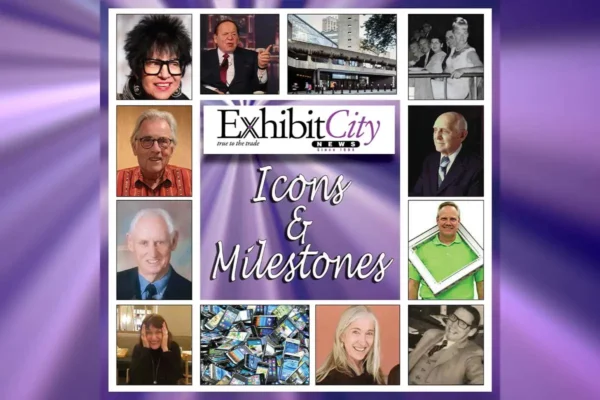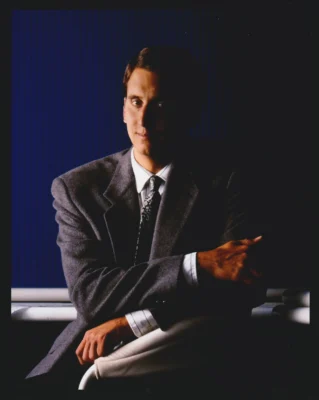Welcome back! In today’s class, we will discuss the power and prestige of presenting, also known as speaking, at tradeshows. We have gone over this subject before, but it is important enough to revisit.
Also reviewed in previous classes is the fact that tradeshows offer a wealth of opportunities to get noticed. There is the booth display and messaging; off-the-floor networking events and receptions; the best of show award competitions and press room meet and greets, but no opportunity quite speaks of your prestige in the industry like a speaking opportunity.
Call for speakers
Speaking opportunities generally present themselves in the form of a ‘call for speakers,’ ‘call for papers’ or ‘abstracts’ anywhere six to nine months out from a show. This is a general rule of thumb; however, some shows post even closer to a year in advance. The details, rules and regulations of the ‘speaker solicitation’ are generally posted on both the show’s website and registration literature. Many shows reference speaking submissions as something different, but regardless of whether it’s called a proposal, a paper, an abstract, an application or otherwise, two things remain firm for all shows: deadlines and guidelines. Strict compliance to such parameters is paramount to even be considered for the privilege to speak.
People who decide on the speakers are predominantly looking for strong topics as much as they are seeking strong speakers. Big companies and corporations often get top billing as a result of public relations considerations, despite all efforts of show producers to remain objective; it’s merely the nature of the beast.
Keep in mind that speaking submissions usually require a bio of the prospective speaker with a specific word count. Again, adherence is essential.
Most tradeshows are run by industry associations, publications or sometimes the merging or partnership thereof. Committees are formed representing members of these organizations to vote on the eligible speaking candidates. Once a list of prospective speakers is compiled, the committee votes and whittles the list down to a short one until ultimately a roster of lucky speakers emerges.
The key to keynote speakers
Keynote speakers are predominantly invited to speak and are often even paid to do so. Typically, keynote headliners carry a fair amount of prestige and notoriety. Often famed authors, CEOs, retired, politicians, athletes and subjects of inspirational and against-all-odd survivor stories serve as keynotes. Examples of such individuals who draw huge audiences at tradeshows include former President Bill Clinton; Richard Branson, chairman of Virgin Group; Deepak Chopra and hiker Aron Ralston. Speakers of this caliber are always commensurate with the prestige of the show itself. A big show requires a big speaker.
Solicited, unsolicited and paid speaking opportunities
A paid-speaking spot, also known as a speaking sponsorship, will never carry the weight of an unsolicited (invitation-only) or solicited (submission-required) opportunity due to the often unfavorable stigma associated with paid spots as sales pitches, shameless plugging of one’s product and inexperienced speakers. Whereas the reputation of an unsolicited or solicited speaking session, a chosen speaker, is that of a more educational nature as well as motivational, informative, inciting and yes, sometimes, even entertaining and humorous.
Look before leaping (or speaking)
Tailoring and presenting a speech requires a lot of work and involves a lot of pressure so be sure to know that there is value in the opportunities in which you are seeking or accepting. A tell-tale sign of a good speaking opportunity is notoriety and widespread familiarity with the association or publication producing the show or of course, the event itself. Research the track record of the show and even speak to past and upcoming exhibitors to gain a pulse of the energy of the show and its attendees. Also reference the show’s website for past speakers to get an idea of topics and the level of experience they look for when considering speaking submissions.
A good idea is to create a speaking opportunity spreadsheet (SOSS). Include basic facts about the tradeshow including name of the show, dates of the show, destination, number of attendees, speaking opportunity deadlines; specifying whether they are paid (speaking sponsorships), solicited (submission required) or unsolicited (invitation only); the link to the speaking opportunity as well as the deadline. Marketing and tradeshow managers can more easily reference and better weigh their options this way.
Speaker in the house
If your submission is selected, a desirable presenter representing any given company should have obvious qualities of a strong public speaker. Such attributes as experience, knowledge of the topic, and charisma often come in handy. As likeable as a presenter may be, an effective speaker is the kind who gets an invitation to return.
Effective tradeshow speaking and presenting involves three main elements:
- Education – Always teach or reveal something new industry related to the audience
- Inspiration – Attempt to evoke enthusiasm about the subject at hand
- Information – Don’t forget to include industry-related facts and FAQs
It is imperative that the speaker remains focused on the topic never attempting to promote or sell a product or service. Producers frequently conduct and distribute surveys about the speaking sessions. If this cardinal ‘no-plugging’ rule is violated, a speaker and/or company can be flagged, jeopardizing his or her future chances of presenting at that show.
Keeping it fresh
A sure-fire way to keep show producers and audiences peaked is to tie the speaking topic to hot headlines or something trending now. For instance, if at a marketing or advertising-related show, weaving current events such as social media networking, Bluetooth marketing or QR codes into the topic keeps a presentation fresh and exciting and often helps adhere and fulfill the three key elements to a successful trade show speech: educational, inspirational and informational. Another way to avoid presenting an overly covered or tired topic is to reference speaking programs and websites from past shows.
Perks of presenting
Many of the benefits of speaking and presenting at tradeshows comes long after the actual session takes place. It is the residual leverage gained through public relations and media exposure where the real payoff occurs. After speaking, your company and its speaker can infinitely be qualified as a presenter and sometimes a repeat presenter at that annual show or exhibition. It is a great addition to any résumé or curriculum vitae and forever is a feather in one’s cap.
Homework
- Review SOSS with all appropriate departments/individuals to pick speaking opportunities that best fit your company’s needs.
- Submit your speaking paper, abstract or proposal with all required literature and materials. Be sure to turn in on or preferably before entry deadline.
- If chosen/invited to speak, be sure to tie your topic into something fresh, current or trending now.
- If speaking, be certain to be educational, informative and inspirational; it’s never a bad idea to throw in a joke for good measure!
- Create a speaking opportunity spreadsheet (SOSS). List all shows of interest to your company and include dates, destination and specify whether speaking opportunities are solicited (submission required), unsolicited (invitation only), paid (speaking sponsorships) and costs involved. Don’t forget to include the speaking opportunity link and deadline on your spreadsheet.
About Linda Musgrove, the TradeShow Teacher
Linda Musgrove is founder and President of TradeShow Teacher, a full-service trade show training and management firm. Through her result-driven formula, she specializes in teaching companies to significantly improve trade show results through strategic, customized trade show management and training for individuals, departments or entire teams. Training options include phone consulting, webinars, seminars and one-on-one in person coaching. Musgrove authored “The Complete Idiots Guide to Trade Shows,” published by Alpha Books/Penguin Publishing. Learn more at http://www.tsteacher.com and follow on Twitter at: http://twitter.com/tsteacher





























